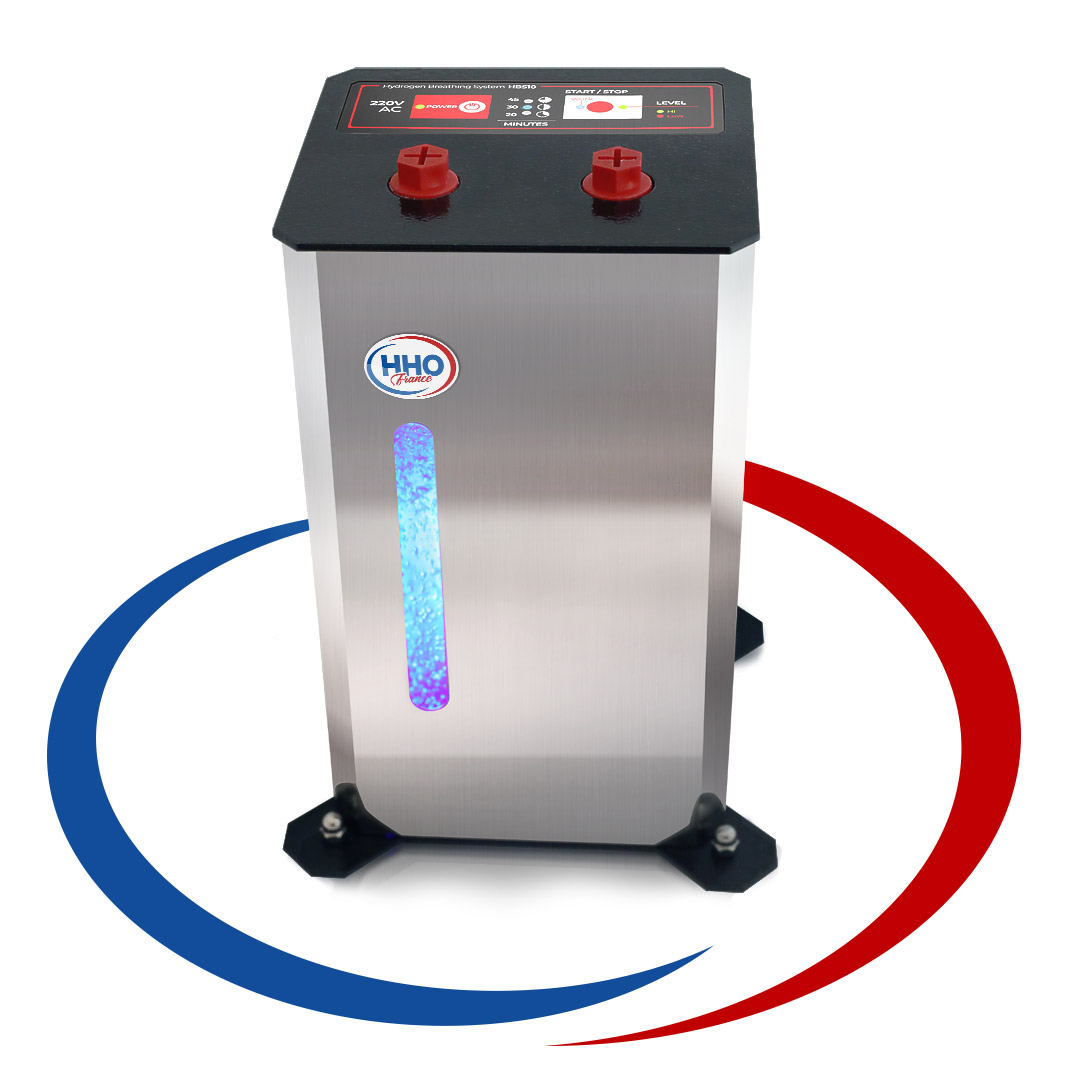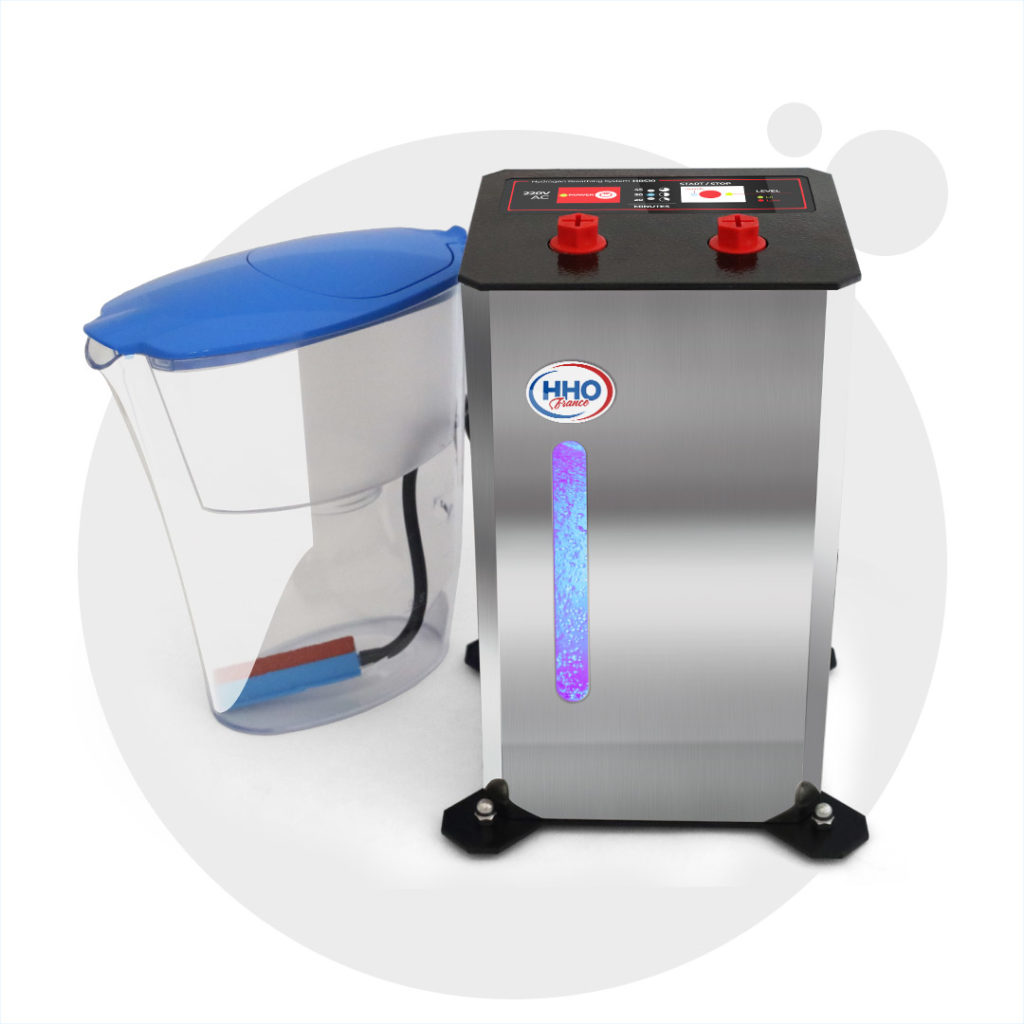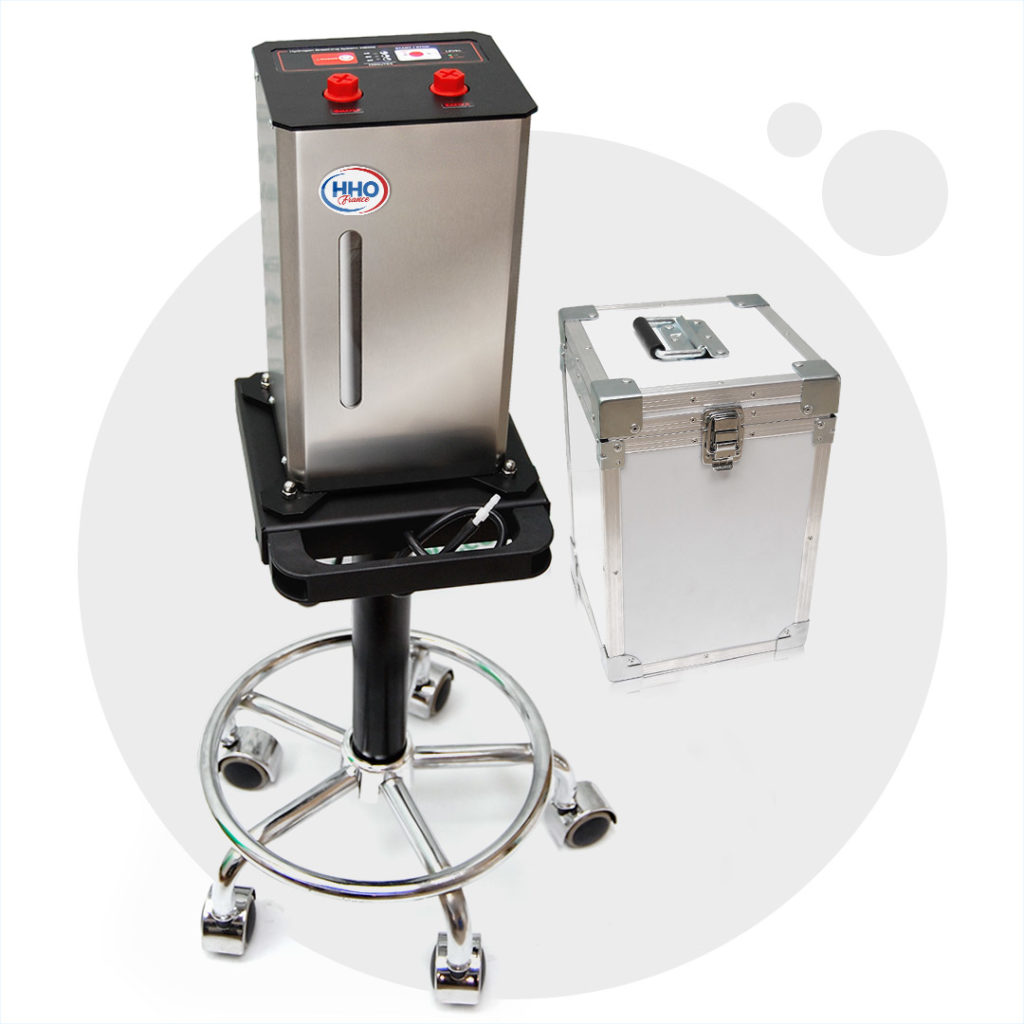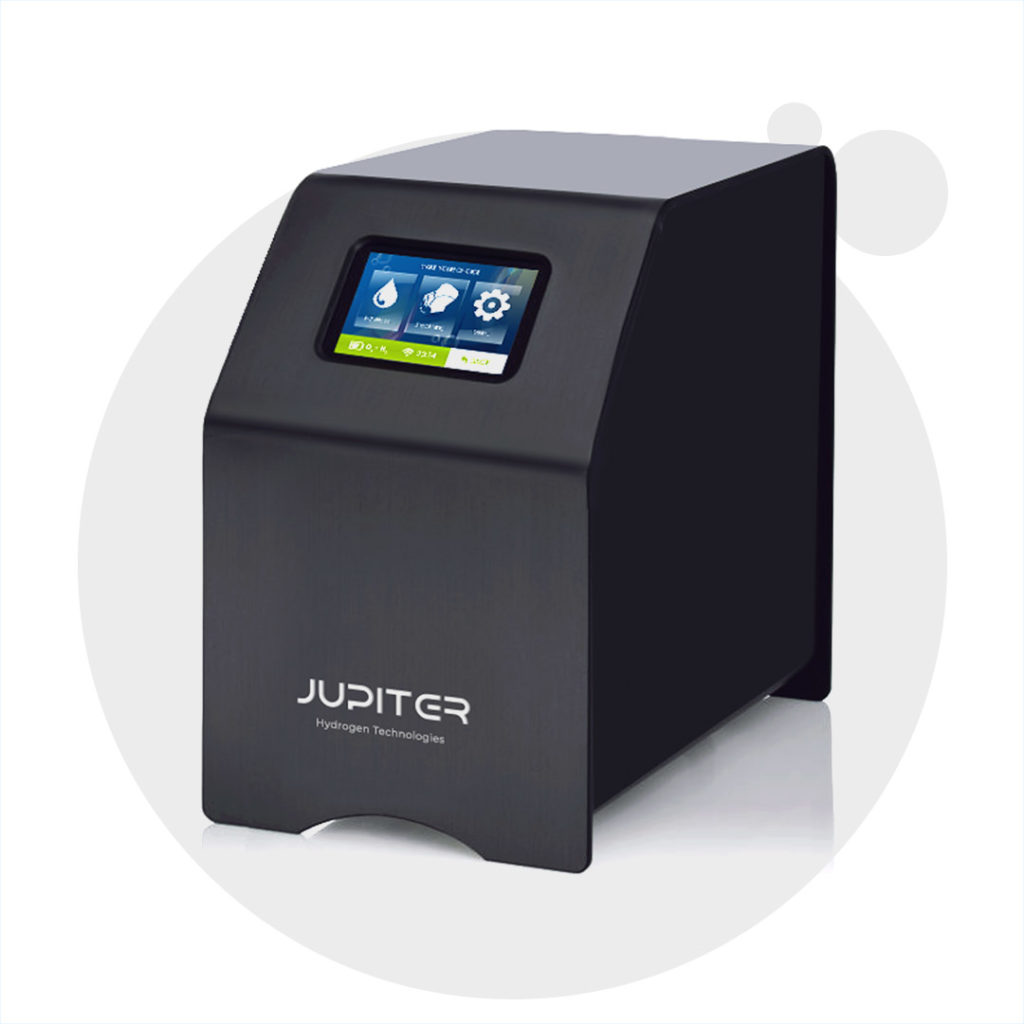Hydrogen Therapy in treatment
of Lung Cancer
Author: Ivan Vlasov, MD
Lung Disease Specialist
A new adjuvant therapy
in Lung Carcinoma (Lung Cancer)
Lung cancer is the most common malignancy and the leading cause of cancer-related deaths worldwide.
Hydrogen has an antioxidant role that can selectively eliminate Reactive Oxygen Species (ROS) or also called free radicals.
With regard to cancer, both increased and decreased levels of free radicals can disrupt redox homeostasis and lead to redox stress leading to cell damage and cancerous transformation.

Hydrogen therapy » the newest tool in control
on the progression of lung carcinoma
and a means of reducing the side effects of conventional therapy
Lung cancer is defined as a malignant epithelial neoplasm originating from the bronchial and less commonly from the alveolar epithelium of the lung.
Lung Carcinoma (LC) is the most common malignant solid tumor in both sexes. Non-small cell carcinoma is identified in 85% of cases of lung, with the 5-year survival for patients with stage IV BC being less than 1%.
Already in 1975 a team of scientists discovered that hydrogen inhalations have the potential to be included in treatment strategies, and it is currently believed that Hydrogen Therapy leads to a significant suppression of the proliferation, migration and invasion of cancer cells.
In a controlled clinical trial conducted between June and September 2019. at Fuda Oncology Center of Jinan University, 58 patients with non-small cell carcinoma were enrolled in the study and divided into groups – immunotherapy group, targeted therapy group, chemotherapy group, hydrogen therapy only group, and control group.
From the conducted research, it is clear that hydrogen therapy can double the time during which the patient does not deteriorate (progression free survival) – from 5 months to 10 months. This suggests that hydrogen therapy alone has the potential to halt carcinoma progression.
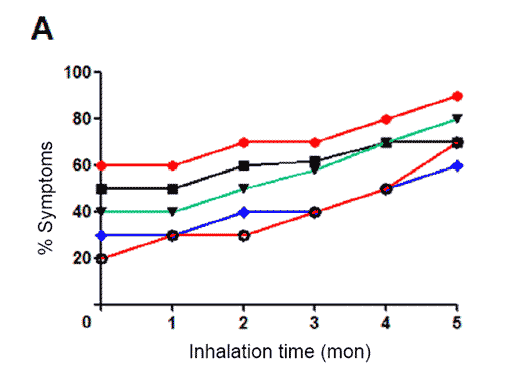
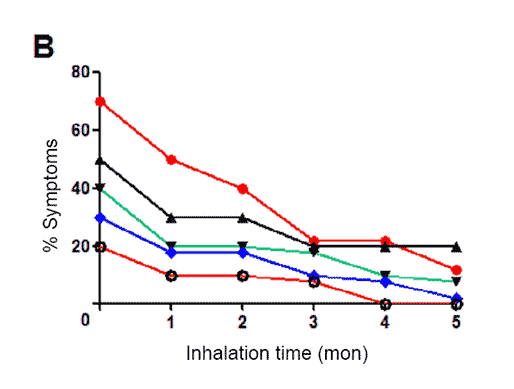
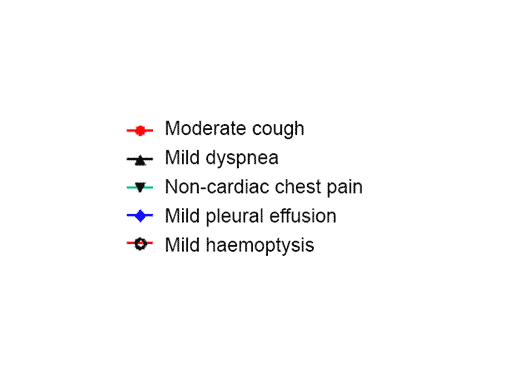
In addition, hydrogen therapy has led to a significant reduction in the side effects of other types of first-line carcinoma therapy – vomiting and nausea, chest pain, various rashes, dizziness and headache, weight loss, anemia, thrombocytopenia.
Hydrogen therapy also reduced the symptoms associated with lung carcinoma – cough, shortness of breath, hemoptysis, pleural effusion and chest tightness.
From the comparative graph (A and B), between the group without and that with hydrogen therapy, the reduction in symptoms caused by lung carcinoma is clearly seen in the patients undergoing hydrogen inhalation.
Visibly reduced: the cough associated with lung cancer; shortness of breath and easy fatigue; chest pains restricting the breathing process.
In those undergoing hydrogen therapy, the incidence of pleural effusions was also reduced from 30% to almost 5%, and the incidence of blood in sputum was reduced from 20% to almost 0% as early as the fourth month after starting inhalation therapy.
Patients on hydrogen therapy significantly reduced the symptoms caused by lung carcinoma (graph B), while patients in the group without hydrogen therapy showed a stable tendency to increase the frequency of symptoms (graph A).
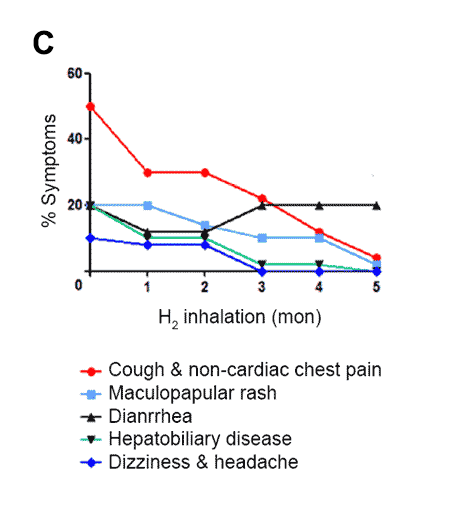
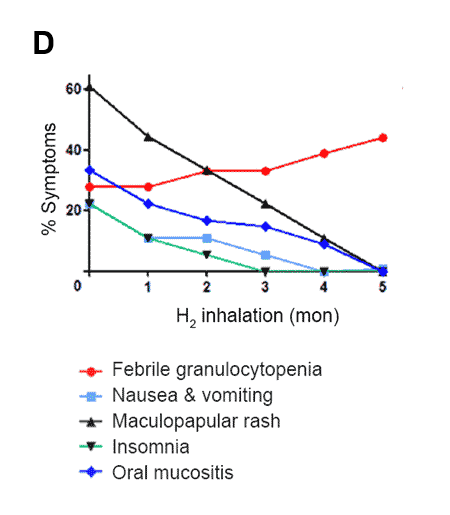
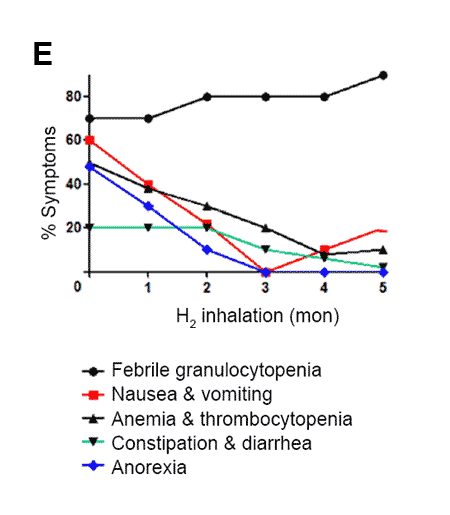
From the indicated graphs, it is clear that hydrogen therapy with inhalations, applied for 5 months, significantly reduces the percentage of side reactions of the standard treatment of lung cancer – nausea and vomiting, macopapular rash, insomnia and inflammation of the mucous membrane of the oral cavity. which occurs with radiotherapy of lung carcinoma.
Hydrogen suppresses the progression of lung cancer
Hydrogen Therapy, as an innovative and alternative treatment, is characterized by antitumor properties, since it is clear from the studies carried out so far that hydrogen leads to a decrease in the production of the transmembrane protein CD47, characteristic of cancer cells.
CD47, which signals the immune system not to destroy cells on whose surface it is found, is found on the surface of cancer cells and initiates their immunological invasion.
According to the results of the studies, hydrogen significantly reduces the production of glycoprotein CD47 in lung carcinoma cancer cells. For this reason, hydrogen inhalation slows cancer progression and invasion of other tissues in the human body.
As a result of this property, hydrogen therapy prolongs the survival period, while at the same time it can be combined with other types of lung carcinoma therapy. Another important discovery is that hydrogen reduces the side effects of chemotherapy, immunotherapy and biological therapy, which improves the quality of life of lung cancer patients.
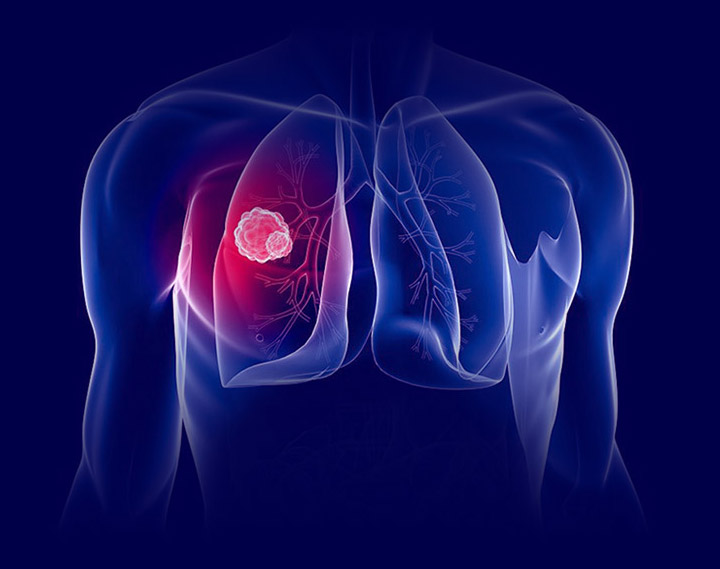
Hydrogen Therapy
at home
HBS10 is a device for hydrogen water and hydrogen breathing, with which everyone can easily apply hydrogen therapy at home. The device produces a minimum of 450 milliliters of hydrogen gas per minute. This covers the internationally accepted standards for hydrogen inhalation therapy.
Proudly made in EU
based on more than 10 years of experience in the production and development of hydrogen technologies
Chromatographically studied at Academy of Science
CE certified
Tested and Recommended by H2HUBB, USA
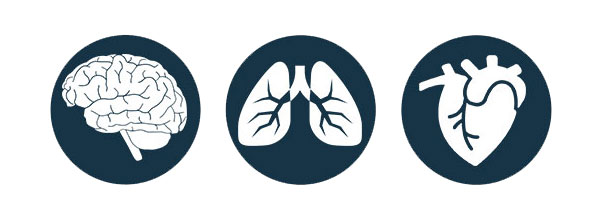
Hydrogen in Chemotherapy and other Cancer Therapies
Chemotherapy, targeted therapy and immunotherapy are used against advanced non-small cell lung cancer. Until recently, a clinically effective method of alleviating the unwanted side effects associated with such therapies has been lacking. The drugs that are used in conventional treatment cause malaise, nausea, vomiting, confusion and other unwanted side effects.
In the already mentioned medical study, as well as in other scientific studies, it has been shown that hydrogen inhalation can be used to control tumor progression and alleviate adverse drug events in patients with advanced lung cancer.
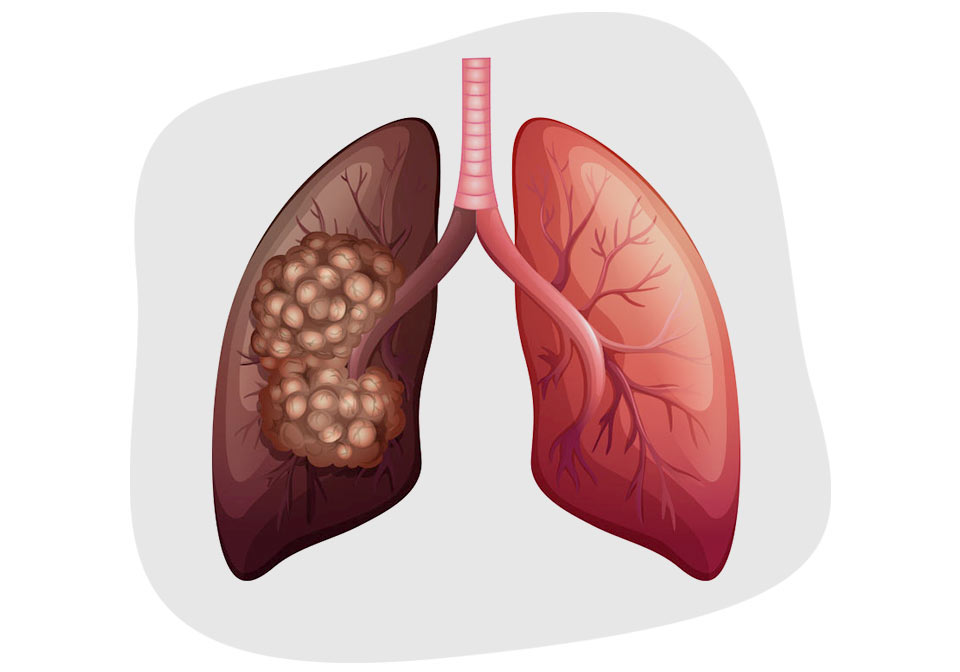
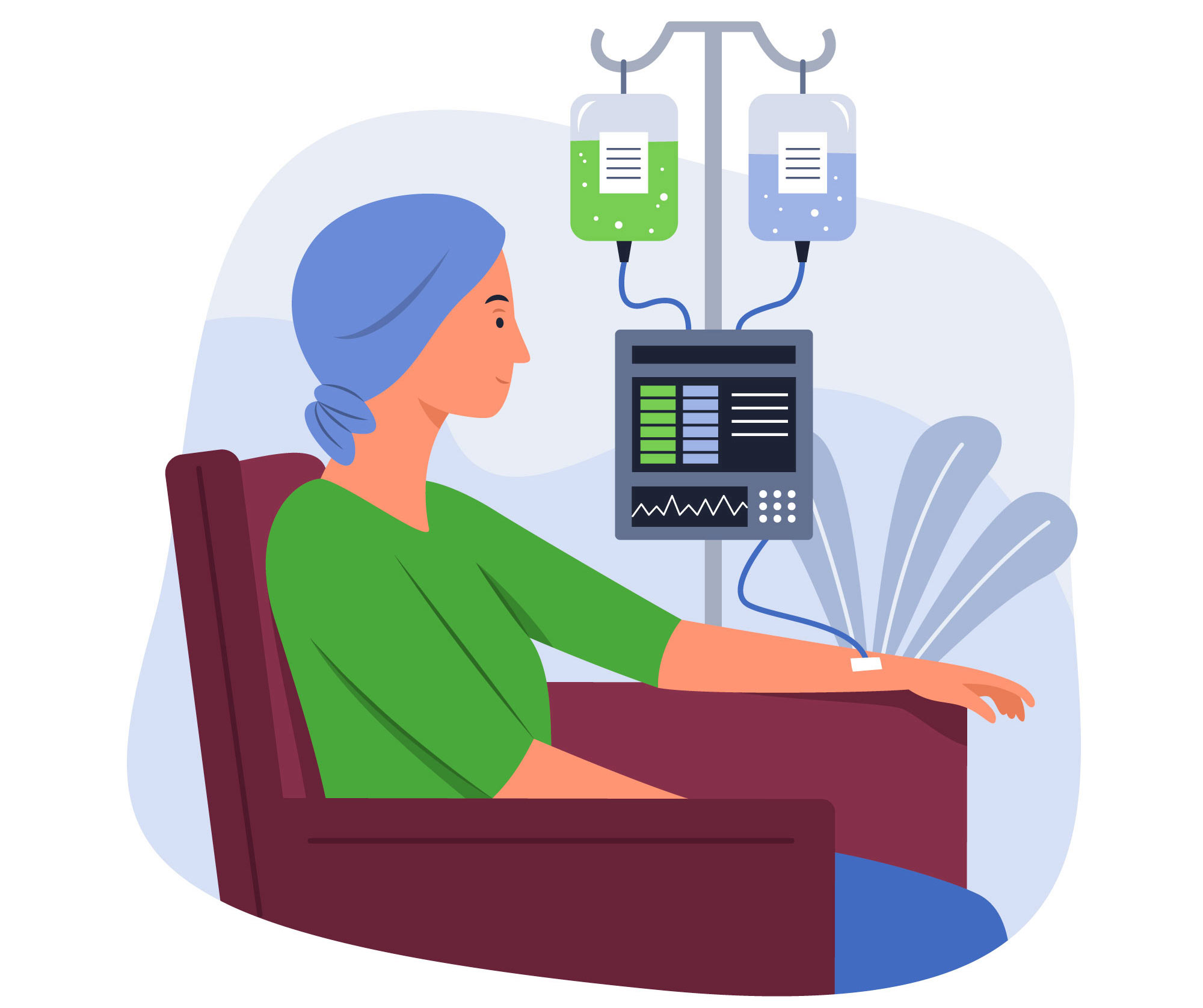
Hydrogen eases side effects of lung cancer drugs
In a clinical trial registered at ClinicalTrials.gov, it was also found that hydrogen therapy, as an adjunctive therapy in combination with traditional drug treatment, eliminated the side effects of drugs used to treat cancer and as a result – the adverse effects were reduced drastically or almost removed.
Brain metastases disappear after inhalation of hydrogen
Lung cancer is the most common type of tumor prone to contralateral lung, bone and brain metastases.
A medical report reported a 44-year-old woman diagnosed with lung cancer and multiple metastases in November 2015. Oral targeted drugs were initiated after removal of brain metastases, and most lesions remained stable for 28 months.
In the same woman in March 2018, multiple intracranial metastases (Image 1) were noted, as well as hydrocephalic accumulation in the third ventricle and lateral ventricles and metastases in bone, adrenal glands, liver.
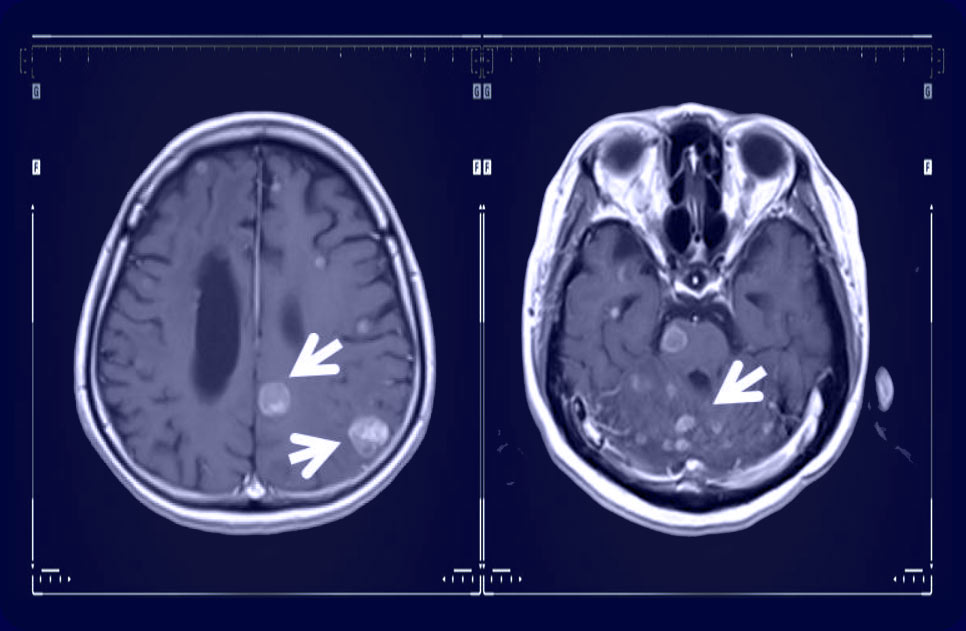
Image 1
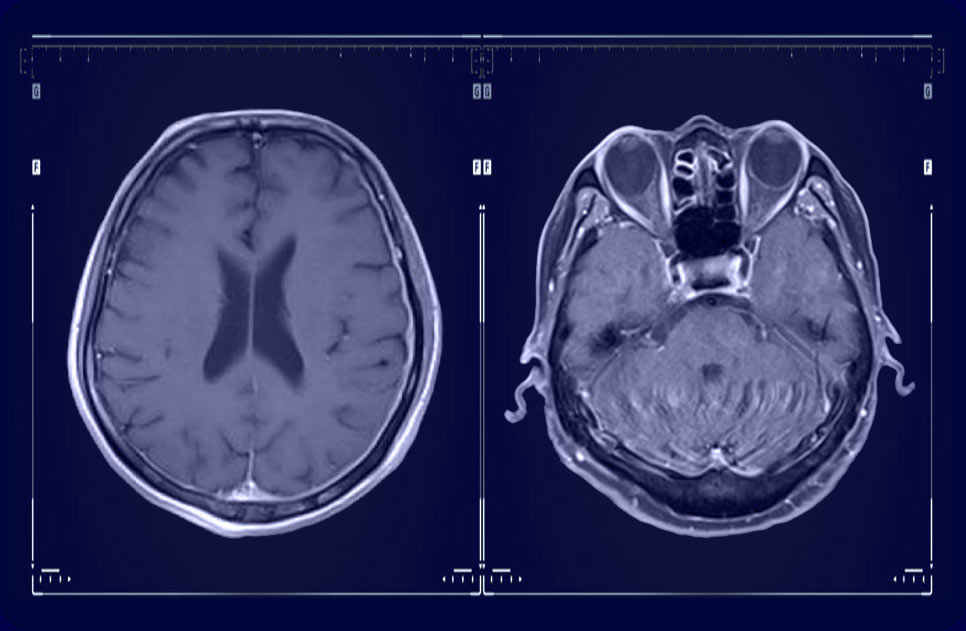
Image 2
The patient begins hydrogen therapy by inhaling hydrogen. Hydrogen gas monotherapy started to control the tumor a month later. After 4 months, the size of the multiple brain tumors was significantly reduced, and the amount of hydrocephalus in the third ventricle and lateral ventricles was visibly reduced.
After 1 year, all brain tumors had disappeared (Image 2), with no significant changes in liver and lung metastases. These data show that after standard treatments have failed, hydrogen gas monotherapy induces significant effective tumor control (especially those in the brain) and prolongs survival time.
Conclusion
The general scientific conclusion made is that inhalation of hydrogen gas every day for 4-5 hours or even 1 hour can significantly improve the general condition and health status of patients with lung carcinoma.
Hydrogen therapy is compatible with modern lung cancer treatment, has a good tolerability profile, and at the same time slows the progression of the oncological disease.
Hydrogen therapy can significantly improve the clinical symptoms of shortness of breath, cough and sputum production in lung cancer patients, as well as the symptoms of nausea, vomiting, dizziness and headache – characteristic of brain metastases.
Here, the fact that hydrogen inhalations are characterized by a good tolerance and safety profile also comes into consideration.
The proven Anti-oxidative effect of Hydrogen Therapy
Free radicals
Free radicals have been scientifically proven to disrupt red-ox homeostasis, leading to cellular oxidative stress.
This is precisely the cause of damage to the cells that make up the human body.
In short, for this reason free radicals have been linked to the onset of almost all known age-related diseases – both Alzheimer’s and:
- ☑ different types of Cancer;
- ☑ Diabetes;
- ☑ Asthma and COPD;
- ☑ Arthritis;
- ☑ Atherosclerosis;
- ☑ many more…

healthy cell
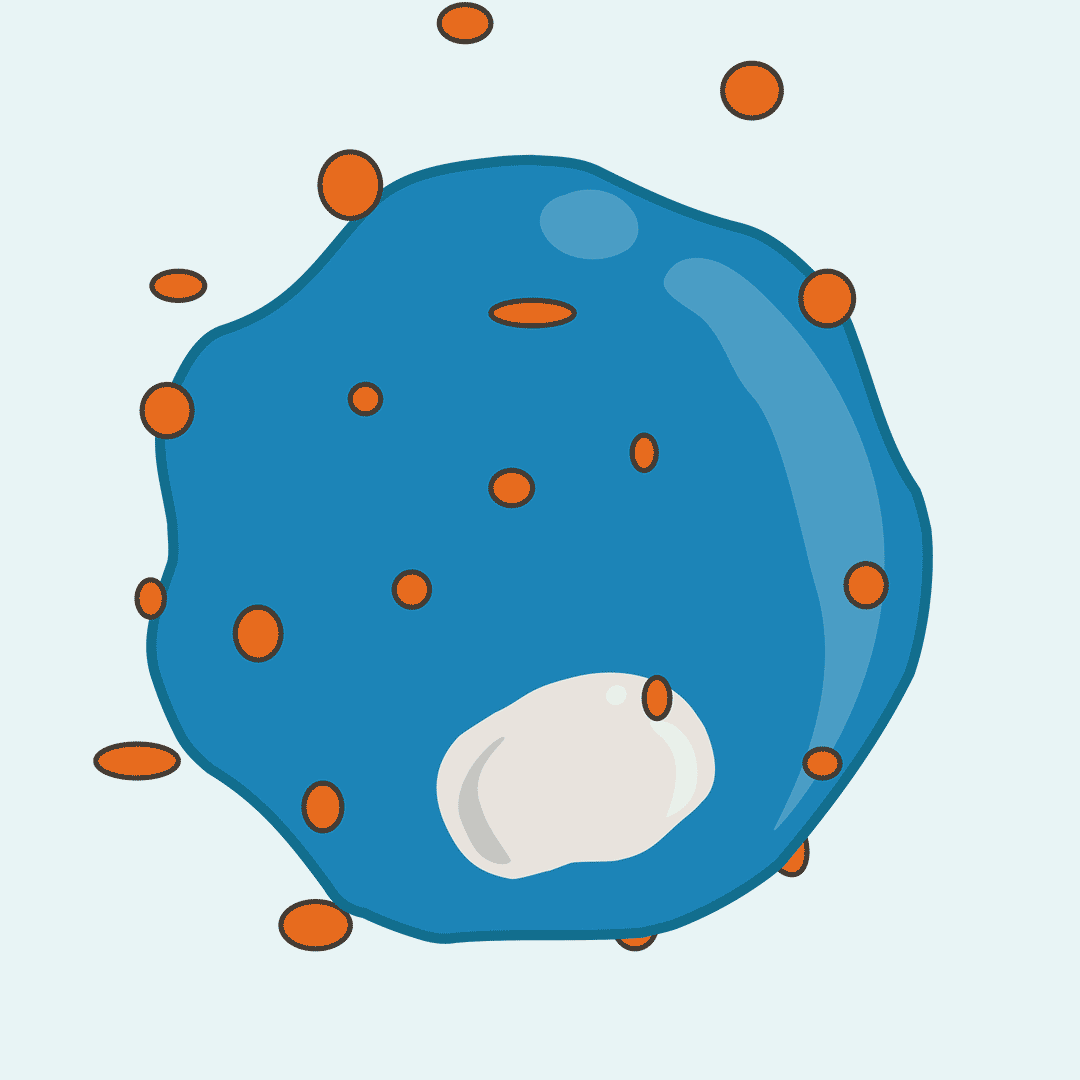
cell attacked
from free radicals
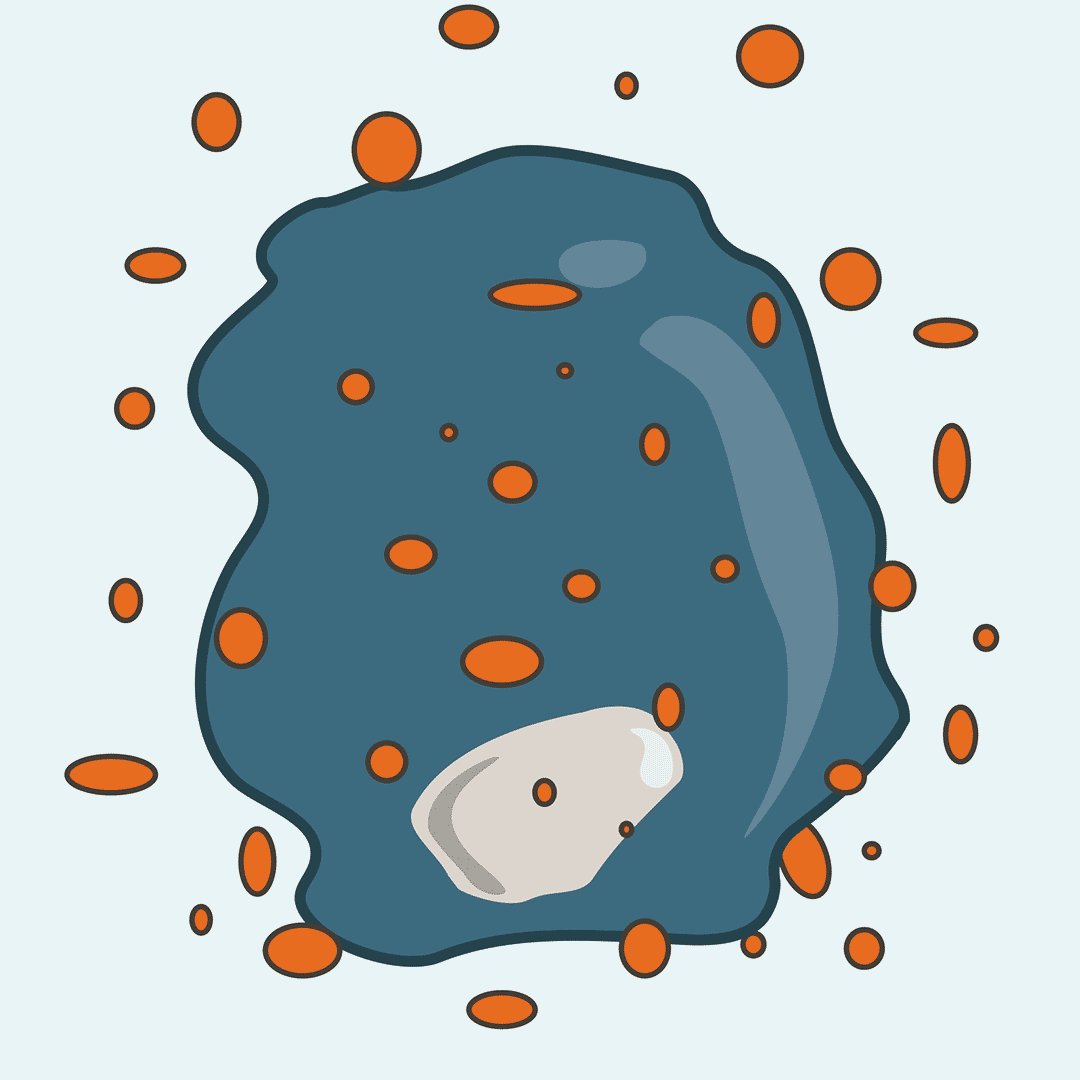
oxidative stress caused by
the free radicals
Hundreds of scientific publications unequivocally show that, thanks to its unproven antioxidant properties, hydrogen reverses this process and suppresses the progression of all types of cancer.
According to the pilot study discussed in this article, the pronounced antioxidant effect of hydrogen helps to reduce the development of Alzheimer’s and Dementia.
HHO France
Hydrogen Therapy Equipment
General benefits of
Hydrogen Therapy
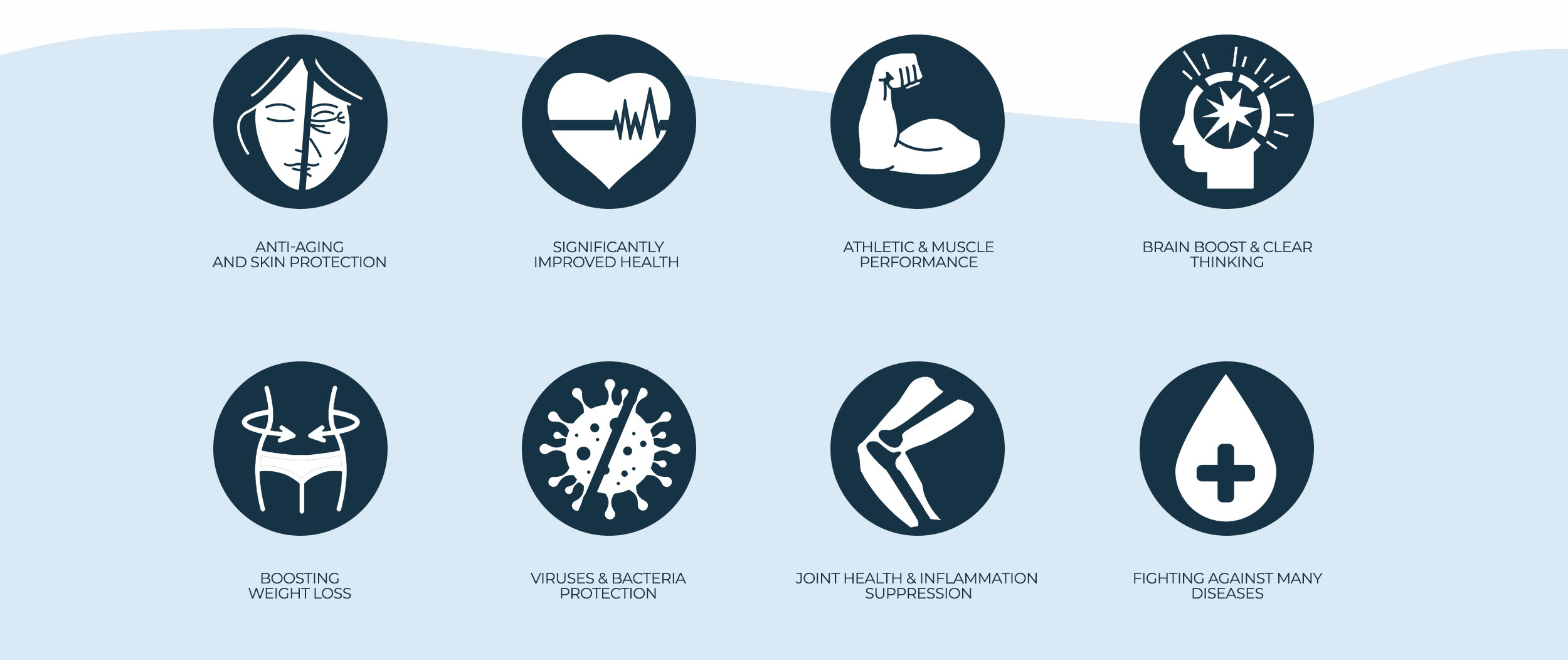
What is
Hydrogen Therapy?
In essence, “Hydrogen Therapy” is an additional regular intake of hydrogen by drinking hydrogen-enriched water and/or inhaling hydrogen-oxygen gas (also known as “Brown gas” or “HHO gas”).
The so-called “Hydrogen water” is structured water saturated with hydrogen, which has been proven to hydrate the body up to 6 times faster than all other types of water (mineral, spring, tap, etc.).
Drinking Hydrogen Water can help neutralize free radicals.
Even more effective is the direct inhalation of hydrogen, since in this way about 100 times more of it is taken.
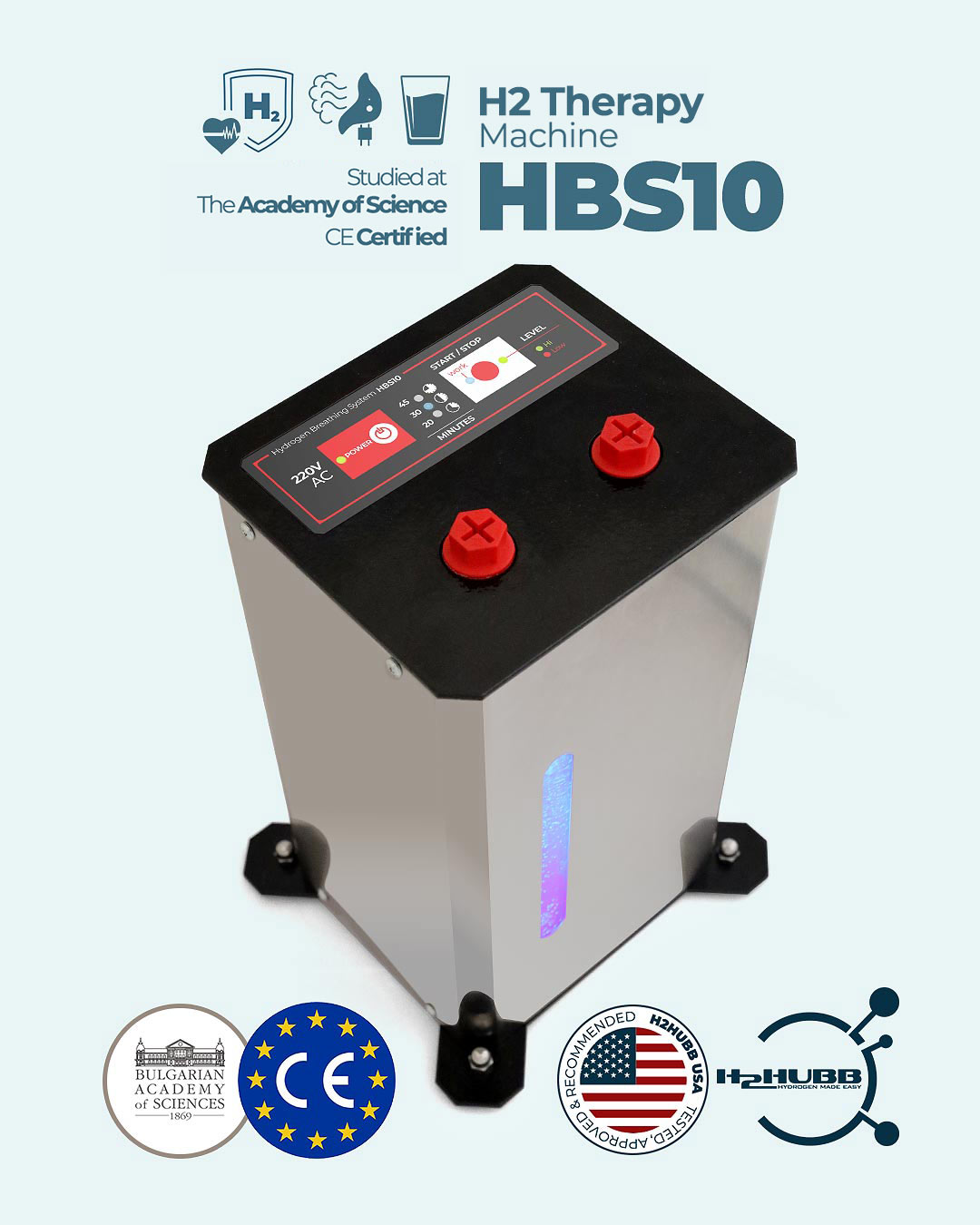
Our best-selling
Hydrogen Therapy Device
OF 2-in-1 TYPE
- Hydrogen Water,
- Hydrogen Inhalation
Designed and manufactured in EU based on previous experience of over 10 years in the production of hydrogen equipment.
Each device complies with European Standards.
A conformity assessment procedure was carried out for the model.
Tested and Recommended by H2HUBB, USA.
Chromatographically studied at Academy of Science.
Marked with European initials for CE conformity.


